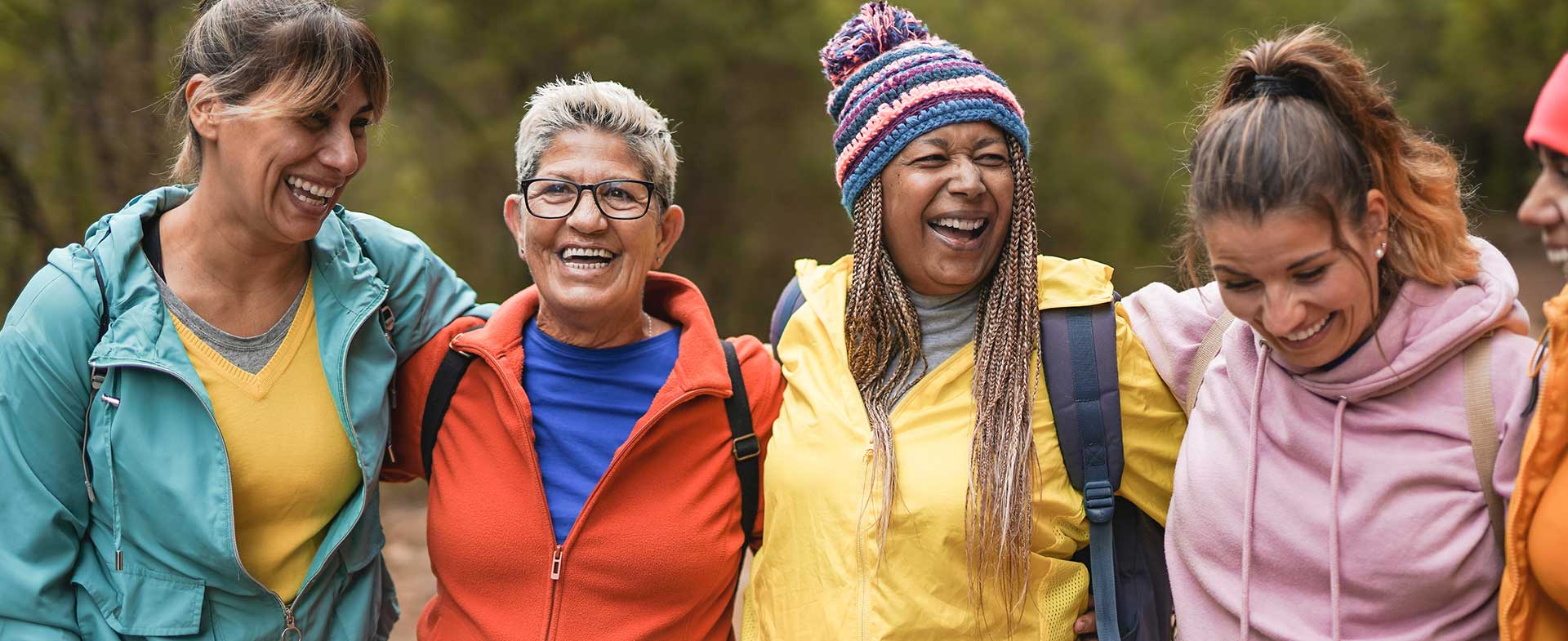If you are at an average risk of developing breast cancer, it means you have a 12% chance of developing the disease within your lifetime. If you are at high risk for developing breast cancer, you have at least a 20% chance of developing the disease within your lifetime.
“The trouble is, about 90% of women who are at high risk don’t know it,” says S. David Nathanson, M.D., a breast cancer surgeon at Henry Ford Health. “We’ve calculated that there’s somewhere between 3,000 to 4,000 women in Oakland County alone who are at high risk for breast cancer and in need of heightened awareness. Monitoring high-risk patients and catching breast cancer early is essential to improving outcomes.”
Here, Dr. Nathanson shares key signs that you are at high risk for breast cancer.
1. You have a family history of breast cancer.
If one or more of your first-degree relatives (i.e. parents or siblings) had breast or ovarian cancer, you are at high risk for developing breast cancer. Or, if multiple family members throughout two or three generations had cancer——you are at high risk for developing breast cancer.
“There are two well-known inherited genes, called the BRCA1 and BRCA2 genes, which are passed down in families and can increase your risk for certain cancers like breast, ovarian and prostate cancer in men,” says Dr. Nathanson. According to the Centers for Disease Control and Prevention (CDC), if your mother or father has a BRCA gene mutation, you have a 50% chance of having the same gene mutation.
There are at least ten known gene mutations that are associated with an increased risk of breast cancer. One is called the PTEN mutation, which is also associated with an increased risk of thyroid cancer. Others include the CHEK2 and PALB2 mutations, and the rare NBN mutation. You can talk to your doctor about getting genetic testing to see if you carry any of the breast cancer gene mutations.
2. You are of Ashkenazi Jewish descent.
“Ashkenazi Jewish women are twice as likely to get breast cancer than non-Ashkenazi Jewish women,” says Dr. Nathanson. According to the CDC, one in 40 Ashkenazi Jewish women has a BRCA gene mutation, which is why they are at a higher risk for developing breast cancer--and at younger ages.
3. You had chest radiation for Hodgkin’s lymphoma before age 40.
Studies show that women who had chest radiation as a treatment for childhood cancer are at a higher risk for developing breast cancer. “This may be related to the fact that radiation can cause genes to mutate,” says Dr. Nathanson.
4. You have any combination of the following factors:
- You’ve never been pregnant, or your first pregnancy was after age 30. Pregnancy increases hormone levels, and increased estrogen exposure is related to a higher risk of breast cancer. “Estrogen levels increase progressively during pregnancy and reach maximum levels in the third trimester,” says Dr. Nathanson.
- You started menstruating younger than age 12 or you didn’t go into menopause until after age 55. Early menstruation means longer estrogen exposure; late menopause also means more estrogen exposure.
- You took hormone replacement therapy for more than five years. Hormone replacement therapy has been used to alleviate symptoms of menopause, but it increases exposure to estrogen and progesterone, and increases breast cancer risk.
- You have extremely dense breast tissue—more than 50% density on mammograms. “Most young women have dense breast tissue,” says Dr. Nathanson. “But as you get older, estrogen decreases, which decreases the density of breast tissue. If you’re older and a mammogram shows you still have really dense breast tissue, it factors into your risk for breast cancer, especially if you have other risk factors as well.”
- You have a BMI higher than 30. Peripheral fat may be a site for estrogen production, so the more peripheral fat you have, the higher your risk for breast cancer.
- You smoke. Research shows that smoking may be related to an increased risk of breast cancer, especially for those who started smoking at younger ages.
- You lead a sedentary lifestyle. Although it’s no cancer cure, regular exercise is linked to reduced cancer risk. The American Cancer Society recommends that adults engage in at least 150 minutes of moderate activity or 75 minutes of vigorous activity every week, ideally spread throughout the week.
- Your diet is lacking in fresh fruits and vegetables. “This is more of a common sense thing. A healthy, well-rounded diet leads to better health in general,” says Dr. Nathanson. “Same goes for reducing stress, limiting alcohol—all of those things our grandmothers could have told us.”
If any of the above factors apply to you, don’t hesitate to reach out to your primary care doctor, who can refer you to a specialist. Taking proactive steps to assess your breast cancer risk can be lifesaving.
Make an appointment to talk with your doctor about your cancer risk factors and necessary screenings at henryford.com or by calling 1-800-436-7936. To find a cancer specialist, visit henryford.com/cancer or call 1-888-777-4167.
S. David Nathanson, M.D., is a surgical oncologist who specializes in breast cancer surgery and melanoma surgery at Henry Ford Health. He leads a multidisciplinary high-risk breast cancer clinic at Henry Ford West Bloomfield Hospital to detect and monitor patients who are at high risk for breast cancer.



